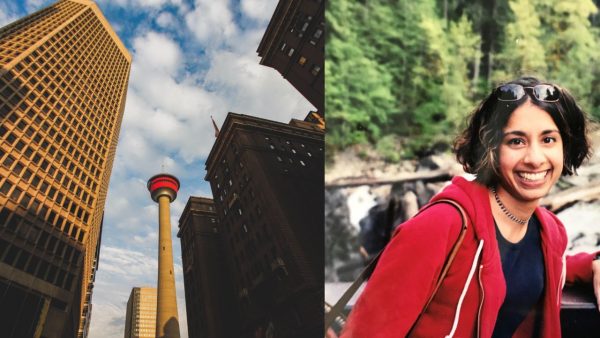The Circle Education works with children and youth to remove dividers that separate us and make us feel different from each other, when in fact we are inherently the same. Our executive director Janine Fernandes-Hayden learned an important lesson about social-emotional learning (sel) when she was a youth volunteering for EXIT Community Outreach in downtown Calgary.
I was 18 years old when I began volunteering for EXIT Community Outreach in Calgary. It was something my parents neither expected nor even suggested. In fact, to this day, it surprises me that they offered no resistance to my decision to volunteer with this organization, considering my sheltered upbringing within an immigrant household with traditional values. To my family, everything about this experience would have seemed edgy, even unsafe. To explain, EXIT Community Outreach operated out of a Brinks armoured vehicle that had been refurbished into a mobile haven for Calgary’s sex workers and homeless population in the downtown core. EXIT took me out of my very naive comfort zone and into a completely foreign world.
Stereotypes and assumptions
My job, which I did on the weekends, was to drive the EXIT van along the streets of the city’s inner core from the late hours of the evening into the early morning. An outreach worker sat up front with me, directing me when to pull over, while two others staffed the back of the van, at the ready with food, warm beverages, blankets, prophylactics and date rape report forms. Separated from the back of the van by a grilled partition, I could only hear the conversations that took place. I never saw anyone, except through the stereotypes and assumptions imprinted on my mind. I felt good that I was doing something of value for “those people”.
One evening, a vibrant group of female sex workers crowded into the van, seeking shelter from the cold. It was one of those dreaded Calgary “deep freeze” nights. As they sipped their hot chocolate, they giggled about crushes, commiserated over heartbreaks, shared makeup tips and anguished over their upcoming university exams. They were young like me and their conversations mirrored the typical types of talks that I might have with my friends. Who knew that we could be so similar? Come Monday morning, we could be sitting next to each other in a university lecture or passing each other in the halls, maybe even with a smile as we breathed the same campus air. It was on that night that “those people” became human to me.
Listening without seeing
When I look back now, there is something very symbolic about the grilled partition that separated me from the young women at the back of the van. It is no different than the types of dividers we put up to keep ourselves from truly seeing others for who they are. And at the same time, listening without seeing is often exactly what we need to correct our short-sightedness.
Decades later, EXIT Outreach continues to direct me as I sit in the driver’s seat at The Circle Education. Our organization works with children and youth to remove dividers that separate us and make us feel different from each other, when in fact we are inherently the same. This is done through our curricula, tackling social-emotional learning (sel) topics like labels, assumptions and stereotypes. And, as our name suggests, we do this by sitting in a circle, face-face, where each person is seen as equal. Our hope is to bring to light those basic and even fundamental similarities that connect us more deeply with one another.
Empathy and compassion
I still wonder what drew me towards EXIT Community Outreach. A sense of service, yes, but more so, I believe that I was the one in need of outreach and a nudge towards a greater sense of humanity. To this day, this experience continues to remind me that my perceptions are mine alone; societal biases, paired with my own insecurities and fears, mar my ability to practice empathy and compassion. I am thankful to be able to look in my rear-view mirror and glance back at this important lesson, for my own benefit, but also for the benefit of my family and the children and youth of our community.

